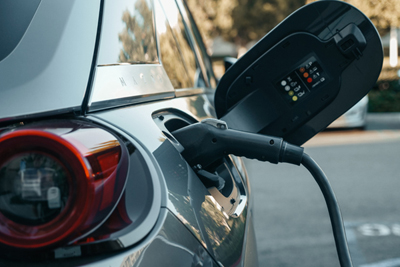Minnesota Auto Dealers Association President Scott Lambert said the group is “disappointed” about the ruling that will raise consumer prices.
The U.S. Supreme Court declined to hear an auto group's challenge of Minnesota adopting "clean car rules" that will require automakers to introduce more low-emission vehicles.
Minnesota will be the first Midwest state to enact strict tailpipe emissions and require automakers to offer more electric and hybrid vehicles, taking effect with the 2025 model year.
The Minnesota Court of Appeals upheld the standard adopted by the Minnesota Pollution Control Agency in 2021.
Minnesota Auto Dealers Association President Scott Lambert said the group is “disappointed” about the ruling that will raise consumer prices.
“We believe using California’s rules is not a good fit for Minnesota,” Lambert said in a statement. “Minnesota dealers are happy to sell customers electric vehicles if those customers choose to purchase them. But we are not in favor of a mandate that requires us to stock vehicles that have very little demand.”
Gov. Tim Walz’s office hasn’t yet responded to a request for comment.
Minnesota adopted the rule to reduce greenhouse gas emissions from transportation, which accounts for a quarter of overall GHG emissions statewide.
Federal data as of 2022 say there are 4.1 million gasoline vehicles, 531,500 E85, 127,300 diesel vehicles, and 46,900 biodiesel vehicles statewide.
Minnesota has 41,417 registered EVs with a goal of 1 million by 2030. To reach that goal, Minnesota must register 136,940 vehicles annually until 2030, or 11,411 vehicles every month for the next seven years.
Lawmakers allotted $10 million for an EV rebate program to boost demand but the program has no start date.
“The Walz Administration’s unilateral decision to avoid legislative debate on this issue and impose California regulations on Minnesota through rulemaking did not take into account the economic harm to our industry or the complications for consumers,” Lambert said in a statement.
The new standard will require vehicles to meet low emission vehicle and zero-emission vehicle requirements similar to those already adopted in 11 states.
The LEV standard requires automakers to introduce cleaner and more fuel-efficient vehicles that emit less greenhouse gas and pollutants. The ZEV program requires manufacturers to offer consumers an increasing number of cars, SUVs and pickup trucks powered by electricity.










Abby Andrews